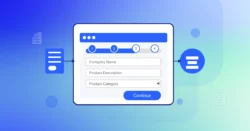A Master Service Agreement (MSA) is a contract that outlines the general terms and conditions governing the relationship between two parties, usually a service provider and a client. The MSA establishes a framework for future transactions, projects, or services, making it easier to handle ongoing work without renegotiating basic terms each time a new engagement occurs. MSAs are particularly useful in long-term business relationships where multiple agreements, deliverables, or services are anticipated over time.
In the software as a service (SaaS) industry, an MSA plays a key role in defining the responsibilities, expectations, and legal obligations of both the service provider and the customer. Key elements in an MSA typically include payment terms, confidentiality clauses, intellectual property rights, dispute resolution mechanisms, and limitation of liability. These terms provide a foundation that both parties agree to, reducing the risk of misunderstandings or conflicts.
One of the main advantages of using an MSA is the efficiency it offers. By having a pre-established agreement in place, companies can quickly initiate projects or services without the need for lengthy contract negotiations each time. Specific details like scope of work, deadlines, and pricing are usually covered in additional documents called Statements of Work (SOWs) or Service Level Agreements (SLAs) that are governed by the terms in the MSA.
In addition to streamlining operations, an MSA helps manage risk by ensuring that both parties have clarity on key legal and operational issues before work begins. This makes MSAs a valuable tool for SaaS companies and other industries relying on ongoing, complex business relationships.













